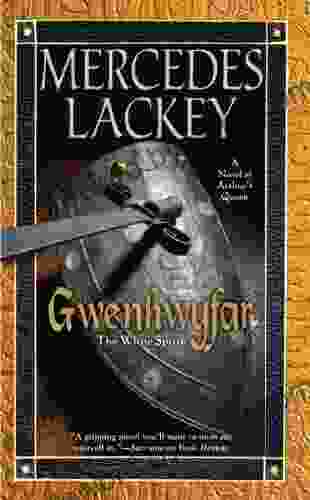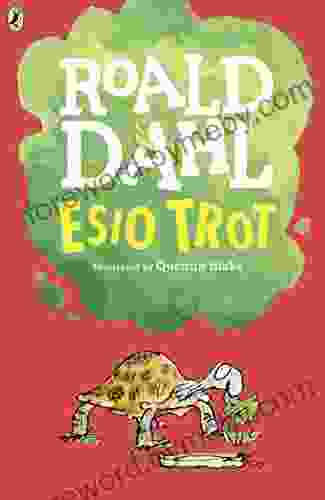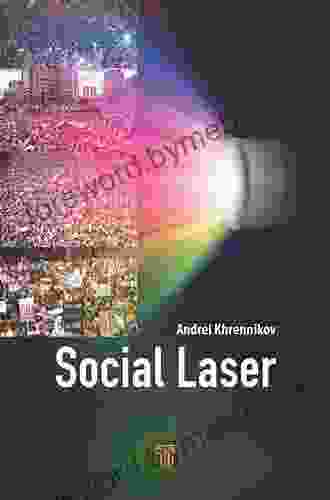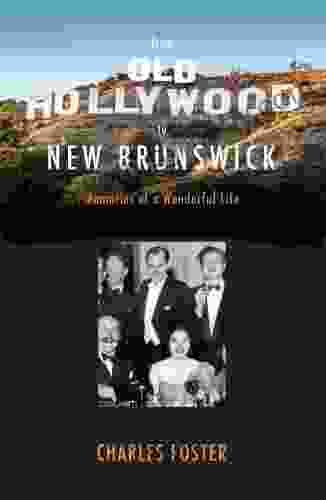Application of Quantum Information and Field Theories to Modeling of Social Systems

The realm of social interactions has long fascinated researchers from various disciplines, including sociology, psychology, economics, and political science. However, traditional approaches to modeling social systems have often encountered limitations in capturing the complexity and interconnectedness inherent in human behavior.
4.6 out of 5
| Language | : | English |
| File size | : | 9655 KB |
| Screen Reader | : | Supported |
| Print length | : | 280 pages |
In recent years, there has been a surge of interest in applying concepts from quantum information and field theories to the study of social systems. This interdisciplinary approach has the potential to revolutionize our understanding of social dynamics and pave the way for novel insights into human cognition, collective behavior, and the emergence of social structures.
Quantum Effects in Social Systems
Quantum information theory provides a framework for describing and manipulating information at the quantum level. Concepts such as superposition, entanglement, and quantum correlations have been found to have striking parallels in social systems.
For instance, researchers have proposed that the phenomenon of quantum superposition, where a particle can exist in multiple states simultaneously, may be analogous to the cognitive state of humans who hold multiple perspectives or beliefs about a situation. Similarly, quantum entanglement, where two particles become correlated even when separated by large distances, has been used to model the deep connections and interdependencies that exist within social networks.
Field Theories and Social Dynamics
Field theories, widely used in physics to describe the interactions of particles, have also found applications in modeling social systems. These theories provide a continuous representation of the state of a system, allowing for the study of emergent collective behavior arising from the interactions of individual agents.
For example, field theory models have been developed to simulate the spread of ideas, opinions, and behaviors within social networks. These models can capture the influence of external factors, such as media coverage or government policies, on the dynamics of social change.
Quantum Social Science: A New Frontier
The convergence of quantum information and field theories with social science has given birth to a new field known as quantum social science. This field seeks to develop theoretical frameworks and empirical methods for exploring the quantum-like properties of social systems.
Quantum social scientists are investigating a wide range of phenomena, including:
* Quantum cognition: The study of how quantum effects, such as superposition and entanglement, influence human information processing and decision-making. * Quantum sociology: The exploration of quantum-like principles in the emergence of social structures, collective behavior, and social norms. * Quantum psychology: The application of quantum concepts to understand the dynamics of human consciousness, emotions, and interpersonal relationships. * Quantum economics: The investigation of quantum effects in financial markets, economic decision-making, and the evolution of economic systems.
Benefits and Challenges
The application of quantum information and field theories to social systems offers several potential benefits:
* Increased precision: Quantum models can capture the subtle interdependencies and correlations within social systems, leading to more precise predictions and explanations. * Novel insights: Quantum concepts provide a fresh perspective on social dynamics, revealing hidden patterns and mechanisms that may not be apparent from traditional approaches. * Interdisciplinary collaboration: Quantum social science fosters collaboration between physicists, social scientists, and computer scientists, leading to a cross-fertilization of ideas and the development of innovative research methods.
However, there are also challenges associated with this approach:
* Mathematical complexity: Quantum models can be mathematically complex, requiring specialized knowledge and computational resources for analysis. * Interpretation difficulties: The interpretation of quantum effects in social systems raises philosophical questions and requires the development of new conceptual frameworks. * Empirical limitations: Despite the promise of quantum social science, empirical evidence for quantum effects in social systems remains limited and requires further investigation.
The application of quantum information and field theories to modeling of social systems is an exciting and rapidly developing field. This interdisciplinary approach has the potential to transform our understanding of human behavior, collective dynamics, and the emergence of social structures. While significant challenges remain, the potential rewards of quantum social science are immense, offering unprecedented insights into the complexities of the human world.
4.6 out of 5
| Language | : | English |
| File size | : | 9655 KB |
| Screen Reader | : | Supported |
| Print length | : | 280 pages |
Do you want to contribute by writing guest posts on this blog?
Please contact us and send us a resume of previous articles that you have written.
 Book
Book Novel
Novel Page
Page Chapter
Chapter Text
Text Story
Story Genre
Genre Reader
Reader Library
Library Paperback
Paperback E-book
E-book Magazine
Magazine Newspaper
Newspaper Paragraph
Paragraph Sentence
Sentence Bookmark
Bookmark Shelf
Shelf Glossary
Glossary Bibliography
Bibliography Foreword
Foreword Preface
Preface Synopsis
Synopsis Annotation
Annotation Footnote
Footnote Manuscript
Manuscript Scroll
Scroll Codex
Codex Tome
Tome Bestseller
Bestseller Classics
Classics Library card
Library card Narrative
Narrative Biography
Biography Autobiography
Autobiography Memoir
Memoir Reference
Reference Encyclopedia
Encyclopedia Ethelyn Geschwind
Ethelyn Geschwind Jaswant Singh
Jaswant Singh Twiddle Productions Inc
Twiddle Productions Inc Frances Stonor Saunders
Frances Stonor Saunders Frederick Law Olmsted
Frederick Law Olmsted Eva March Tappan
Eva March Tappan Frank Richmond
Frank Richmond Florence Weiser
Florence Weiser Nextgeneration Benefit Advisers
Nextgeneration Benefit Advisers Fern Bernstein
Fern Bernstein Extraordinary Publishing
Extraordinary Publishing Ernest Hemingway
Ernest Hemingway Sam Wyly
Sam Wyly Erica Hunt
Erica Hunt Flo Conway
Flo Conway Essie Mae Washington Williams
Essie Mae Washington Williams Frank Close
Frank Close Eric Stice
Eric Stice Franca Storm
Franca Storm Simone Braverman
Simone Braverman
Light bulbAdvertise smarter! Our strategic ad space ensures maximum exposure. Reserve your spot today!

 Raymond ParkerUnveiling the Enchanting Realm of "The White Spirit: A Novel of King Arthur"
Raymond ParkerUnveiling the Enchanting Realm of "The White Spirit: A Novel of King Arthur" Wayne CarterFollow ·17.6k
Wayne CarterFollow ·17.6k Ian McEwanFollow ·10k
Ian McEwanFollow ·10k Virginia WoolfFollow ·7.1k
Virginia WoolfFollow ·7.1k John SteinbeckFollow ·18.9k
John SteinbeckFollow ·18.9k Jacob HayesFollow ·11.6k
Jacob HayesFollow ·11.6k Carl WalkerFollow ·18.1k
Carl WalkerFollow ·18.1k Maurice ParkerFollow ·13.5k
Maurice ParkerFollow ·13.5k Sammy PowellFollow ·3.4k
Sammy PowellFollow ·3.4k

 Al Foster
Al FosterDive into the Enchanting World of Manatees: An...
Unveiling the Secrets of the Gentle...

 Isaac Mitchell
Isaac MitchellThe Farm Reggie and Friends: US Version - A Captivating...
A Heartwarming Tale that Embraces...

 Esteban Cox
Esteban CoxThe Interior Design Handbook: Your Comprehensive Guide to...
Are you ready to...

 William Wordsworth
William WordsworthFall Head Over Heels for "Esio Trot" by Roald Dahl: A...
Prepare to be charmed, amused, and utterly...

 Caleb Carter
Caleb CarterBlack Clover Vol Light Frida Ramstedt: A Thrilling...
Prepare to be spellbound by...

 Richard Simmons
Richard SimmonsFantastic Mr. Fox: A Literary Adventure That Captivates...
In the realm...
4.6 out of 5
| Language | : | English |
| File size | : | 9655 KB |
| Screen Reader | : | Supported |
| Print length | : | 280 pages |










